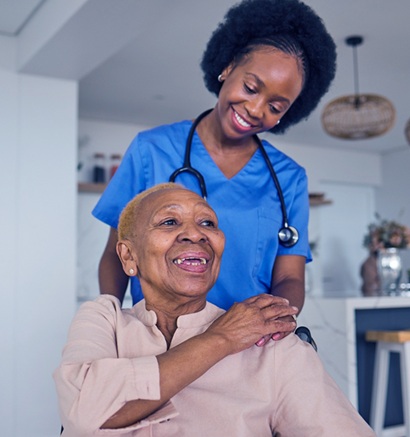WORLD HEART DAY: NIGERIA’S CHALLENGE, EOON CARE’S COMMITMENT
Every 29th of September, the world comes together to mark World Heart Day, a reminder that cardiovascular diseases (CVDs)—including heart disease and stroke—remain among the leading causes of death globally. The World Heart Federation calls on individuals, families, organisations, and governments to use this day as a turning point: check your heart health, take action on risk factors, and push for fair access to prevention and treatment.
At EOON Care, we see heart health not only as a medical issue but as a community issue—one that touches the wellbeing of families, caregivers, and the elderly population we serve.
THE HEART HEALTH SITUATION IN NIGERIA
Nigeria is at a crossroads with heart disease.
-
One in three Nigerian adults lives with high blood pressure, often without knowing it.
-
Cardiovascular diseases account for up to 15%–43% of hospital admissions in some centres.
-
Awareness and early detection remain low—many people do not know their blood pressure, cholesterol, or blood sugar status until complications arise.
-
Lifestyle shifts—urban diets, rising obesity, stress, and physical inactivity—are increasing risks nationwide.
This growing burden does not only affect individual families; it places strain on Nigeria’s health system and economy through lost productivity, high hospital costs, and preventable deaths.
HOW EOON CARE CONTRIBUTES
At EOON Care, our philosophy is simple: prevention, dignity, and person-centred care. On World Heart Day, we reaffirm our commitment to:
1. Awareness & Education
We run health talks, caregiver training, and community outreach that highlight key risk factors: high blood pressure, poor diet, inactivity, smoking, and stress. Knowledge is the first step towards healthier choices.
2. Screening & Early Detection
Our caregivers and health partners help families monitor vital signs—blood pressure, blood sugar, weight—and encourage regular check-ups. Identifying risks early saves lives and reduces long-term costs.
3. Lifestyle Support
We don’t just provide care—we encourage change. From nutrition support at Celine Care Centre to companionship that promotes physical activity at home, EOON Care helps elders and families make small, consistent adjustments: eating more vegetables, reducing salt, walking daily, and managing stress.
4. Supporting the Vulnerable
Heart health matters for everyone, but especially for the elderly and those already managing chronic illness. By providing residential care, home visits, and respite services, we make sure vulnerable populations are not left behind.
A CALL TO ACTION
Heart disease is preventable. This World Heart Day, let us each take responsibility:
-
Check your blood pressure.
-
Eat for your heart.
-
Move more, sit less.
-
Avoid tobacco and reduce salt.
At EOON Care, we use heart for every heart—by building trust, empowering families, and supporting Nigeria’s ageing population with compassion and excellence. Together, we can beat heart disease.
Hashtags
#WorldHeartDay #HeartHealth #HeartDayNigeria #PreventCVD #UseHeartForEveryHeart #EOONCare #HealthyHearts #CheckYourBP #DontSkipTheBeat
Would you like me to also design a World Heart Day social media graphic (1080x1080 in EOON Blue & Green, with heart + heartbeat theme and EOON Care logo) to go along with this blog?









